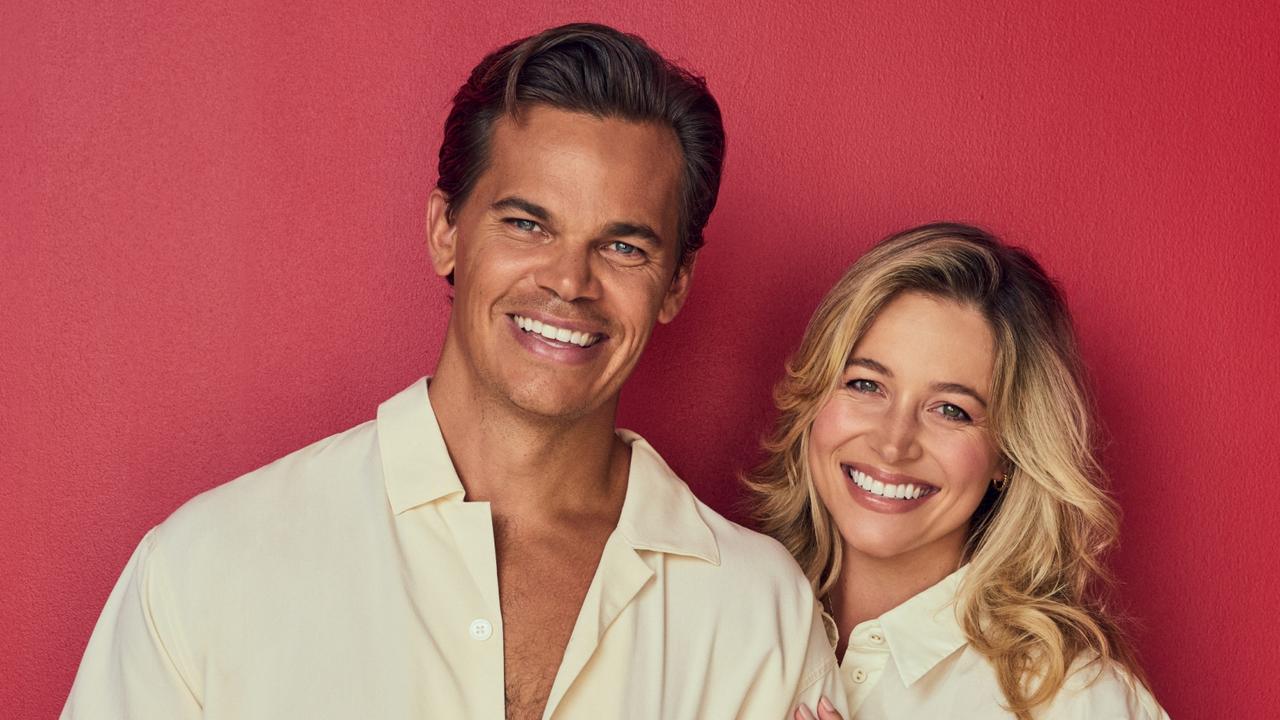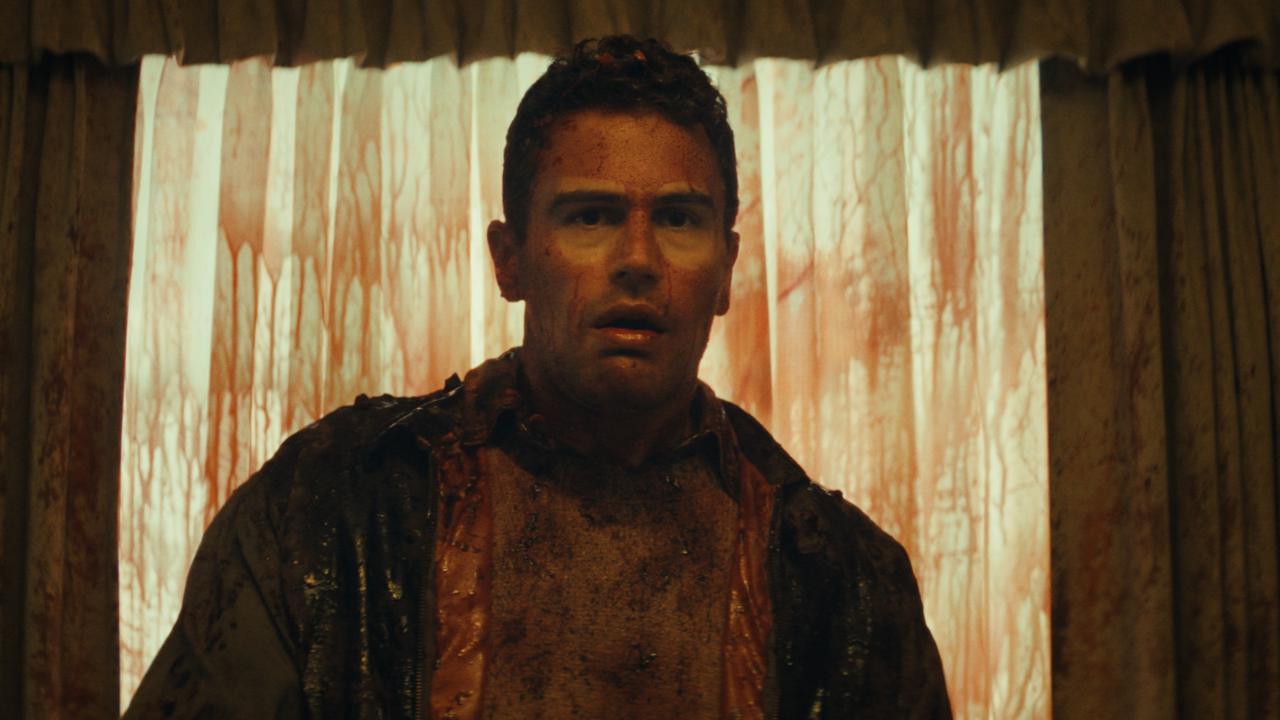Kate Ellis: ‘You can wear pretty clothes and have a brain too’
IN 2009, Kate Ellis was voted Australia’s sexiest politician — by other MPs. But the focus on her appearance often got in the way of her message.
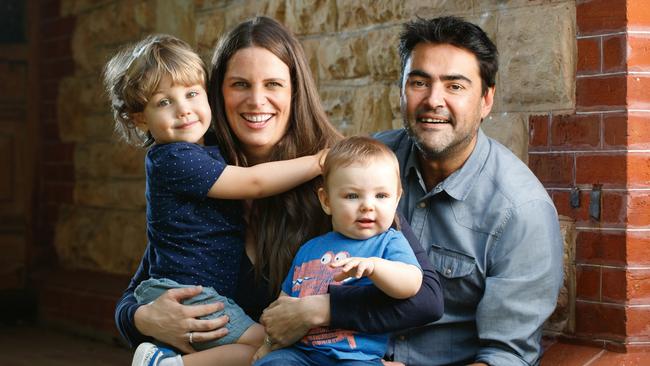
Stellar
Don't miss out on the headlines from Stellar. Followed categories will be added to My News.
KATE Ellis stands in her front yard, a newly woken baby perched on her hip. It’s a brief moment of peace after a morning spent entertaining two sick children, cleaning up a toilet-training accident, being splattered with baby food, chasing two pigeons out of her lounge room, and — somehow, in the middle of all that — sitting down for a photo shoot and interview with Stellar.
She’s musing about post-political life when she stops, looks down at a sudden puddle on her shirt courtesy of her seven-month-old son Charlie and laughs. “Yes,” she deadpans. “Glamorous Kate Ellis.”
That adjective has been applied to Ellis so often since she entered Federal Parliament that it could be confused for her official title. It was first bestowed when she was elected Member for Adelaide in 2004 at age 27, and went into high rotation — not always as a compliment — when she became Australia’s youngest-ever federal minister at 30.
Ellis was young, passionate, and, by her own admission, not ready to be a minister. She loved her job, but for a long time felt like an imposter in the weird world of Parliament. “It’s only in the past couple of years that I finally felt comfortable in the Parliament, and that I’ve got this,” she says.
And yet she’s now leaving it all behind. Because in the three-odd years since she became a mother, Ellis has realised there is one thing more important to her than influencing millions of lives at a distance, and that is intimately shaping two little lives under her own roof. Her decision not to run at the next election sparked a national debate last year. Some questioned Ellis’s feminist commitment; others saw her choice as a reflection of the hostility of parliamentary life where women are concerned.
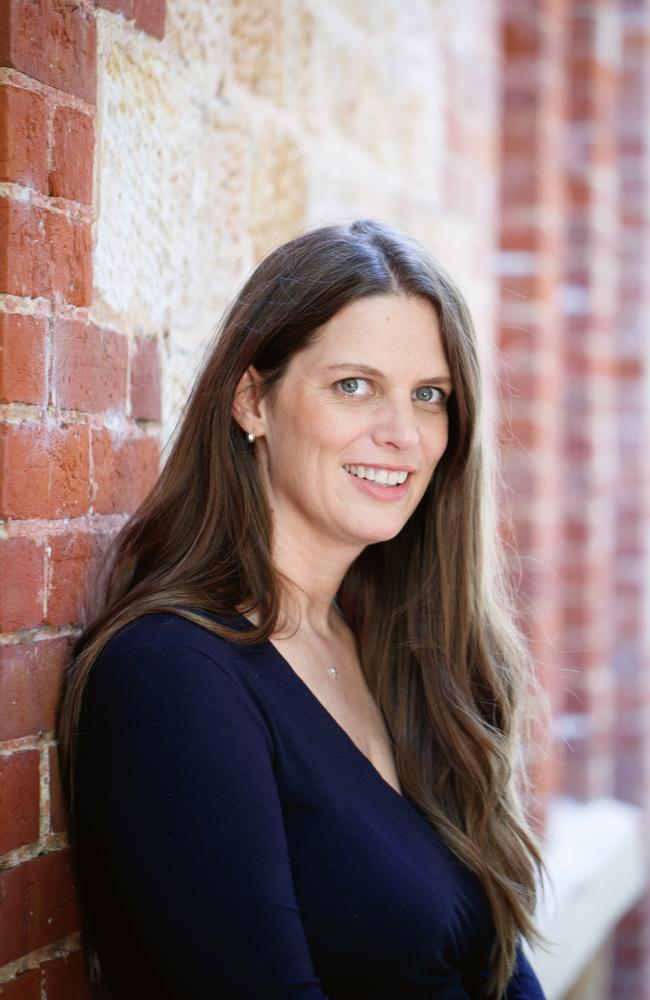
But it was neither. It was a deeply personal decision about whether Ellis could bear to be away from her boys for about 20 weeks a year, and risk not being able to tuck them in when they were sick, or hold their hands on the first day of school. “I can’t tell you how much time I have spent thinking of different ways [to make it work],” she says. “But once the decision clicked, I knew there was no other way.”
When Parliament sat in mid-February, the federal Labor caucus numbers swelled by one. Sam Penberthy’s little legs dangled from a chair beside his mother’s as he listened to the speakers discuss the issues of the week. “He said, ‘I want to come to a meeting with you, Mummy,’ so he came to caucus,” says Ellis of her older son, who turns three next month. “He came to a meeting with Penny Wong and Mark Butler, too.”
He sits quietly at those meetings, colouring or watching Peppa Pig on an iPad. He knows no different — he has been doing this since he was born. So has Charlie, despite his young age. “I can’t count how many citizenship [ceremonies] Sam would have been to, or local street corner meetings in the pram,” Ellis says.
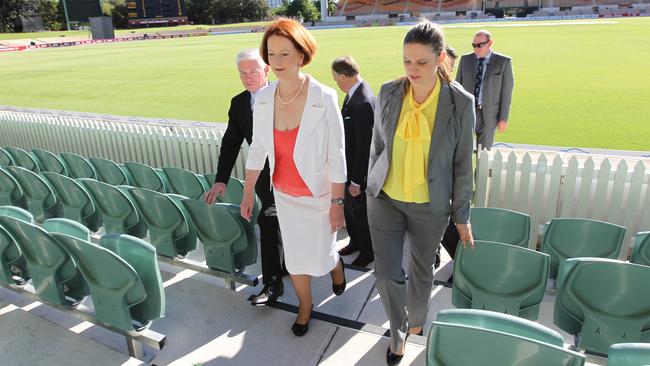
Federal Parliament has a reputation for being unsuitable for children. Not true, says Ellis. In the years since a childcare centre replaced the staff bar, and senior party officials, like the chief whip and manager of opposition business began taking the needs of mothers into account, it has become, in Ellis’s view, one of the country’s most family-friendly workplaces, its corridors crawling with babies and toddlers.
Sam spends his days at the centre when he’s not in meetings with Ellis. She also has a cot in her office for Charlie, who comes to the chamber and meetings with her — “I can focus. I hope everyone else can” — and if he can’t, there’s always someone willing to squeeze his chubby cheeks until his mother returns. “I try to put him down before Question Time and he has a two-hour sleep — sometimes it works, sometimes it doesn’t,” she says. “I am really lucky. There aren’t that many jobs where you can take your babies and toddlers to work with you.”
That flexibility finishes abruptly when school begins. Children can’t leave school for 20 weeks of the year; an MP’s work can’t be done remotely. Sam begins school during the next parliamentary term, so the implications began weighing on Ellis’s mind.
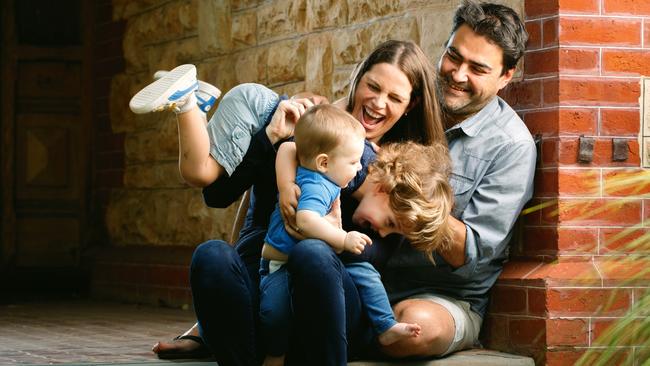
Many MPs are parents, and manage the commute. And if Ellis had been asked before she became a mother whether she would have done so too, she would likely have said yes. “I am not the parent that I thought I would become,” she says. “I remember saying to [husband David Penberthy], ‘I don’t want [a baby] to change my life. I am still going to have the same plan, I am still going to make the same decisions, and the baby is going to have to work around me.’ And here we are nearly three years later, and I haven’t spent a night away from the children yet.
“Probably, before I had children, I would have regarded me as someone who needed to get a life.”
It wasn’t just the sitting weeks in Canberra. Ellis would be an obvious candidate for a ministry if Labor were to win the next election, and that would require constant travel. “I remember what it was like when we were in government,” she says. “It was not uncommon to have three different meals in three different cities.” She considered moving to the backbench, or hiring a nanny to travel with her or stay home with the kids. “We looked at all sorts of things but, in the end, none of them were going to be right for me.
“And whenever I thought about making the right decision, I thought about [being] in government. I’ve been there when it’s a minority government, and you can’t miss a vote for anything. You can’t get leave if it’s your kid’s first day at school. How would I deal with that? There is no way that anything would be worth that for me. I would be miserable.”
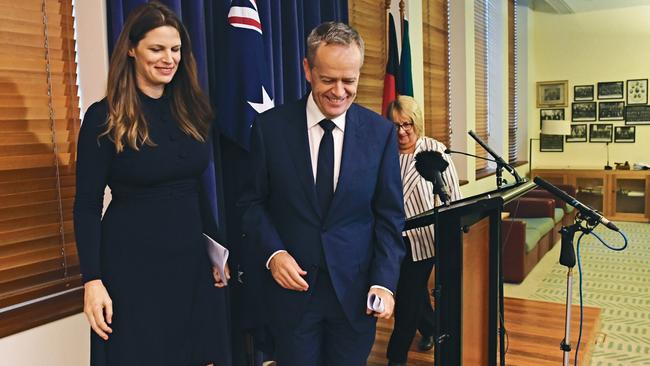
When she first raised the possibility of stepping aside with Penberthy, a former editor of The Daily Telegraph who now works in radio in their hometown of Adelaide, he didn’t believe her. “I thought it was too hardwired into her DNA,” he tells Stellar. In the end, Ellis says, “I had to think about it and make sure I was making a decision that wasn’t for Dave, or even for the kids. It was that I would be miserable. I just knew I would. What makes me happy at the moment is being around them.”
Her eventual announcement sparked a national conversation about work and motherhood. Some feminists believed the former minister for the status of women had let the side down. Others believed it proved full-time politics and motherhood couldn’t mix.
“I was horrified by the idea that I would potentially send a message to women not to run for Parliament,” she says. “It’s the best job I’ve had. I’ve never had a job that’s more exciting, more diverse, more stimulating and challenging. But my decision was not meant to be a reflection on women. It’s a reflection on what’s best for me in my life at this time.”
Ellis says this does not mean she is going to spend every waking moment with her kids — “God help me, I don’t want to do that!”. She wants to work and is happy to travel, but she wants the flexibility to go to an important sporting match, or be there when her kids go to bed at night. She isn’t sure of future career plans, “which is both terrifying and really exciting”. She won’t rule out an eventual return to Parliament, but thinks it’s unlikely.
At just 26, Ellis was left in no doubt that her 2004 preselection for the seat of Adelaide was highly unusual. A local radio announcer described it as “one of the most extraordinary developments I’ve ever seen in modern politics”. Party elders began fussing around her, suggesting she cut her hair, wear plain-glass spectacles, and try to be a little less girly. But, she says, she was savvy enough to realise one thing: “If I was going to stand up, then I had to stand up as me.”
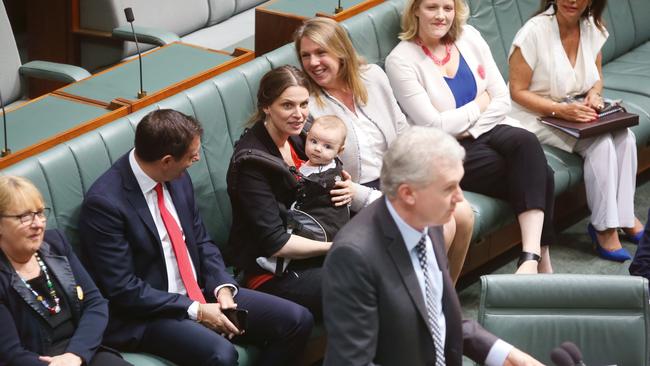
She now admits that she wasn’t ready to be an MP back in 2004. “It all happened pretty quickly,” she says. “It was the Latham election — nobody thought I was going to win. I didn’t really know what I was going to look or act like.” She wasn’t ready to be a minister in the 2007 Rudd government, either. “All of a sudden you’ve got all this staff, budgets, departments to oversee... it took a while to get my head around all of that.”
Ellis loved the grassroots aspects of politics, but felt like an outsider in Canberra. When she became Minister for Sport at 30, she invited the heads of 45 different sports for a meet and greet. “I think I was the only woman in the room,” she says. “A young woman surrounded by sporty blokey blokes. For a long time I thought that I didn’t belong. People talk about impostor syndrome — I think I had it massively when I started as a minister.”
Ellis now admits it took her years to grow comfortable in Parliament. “When you are out in the community, that’s authentic. In Parliament, someone is asking you a question that you’ve written, you are pretending you’ve never heard it before and that they’ve got a genuine interest — that felt so false, and so put on. I was just never really comfortable with the theatre.” She is now. “I have learnt lots of things and I just think I have grown up more. I feel like I am finally at the top of my game when I’m leaving.”
It’s unlikely that any of the 45 blokes at that sports meet and greet would have failed to notice their new minister was attractive. In 2009, Ellis was voted Australia’s sexiest politician — by other MPs. But the focus on her appearance often got in the way of her message.
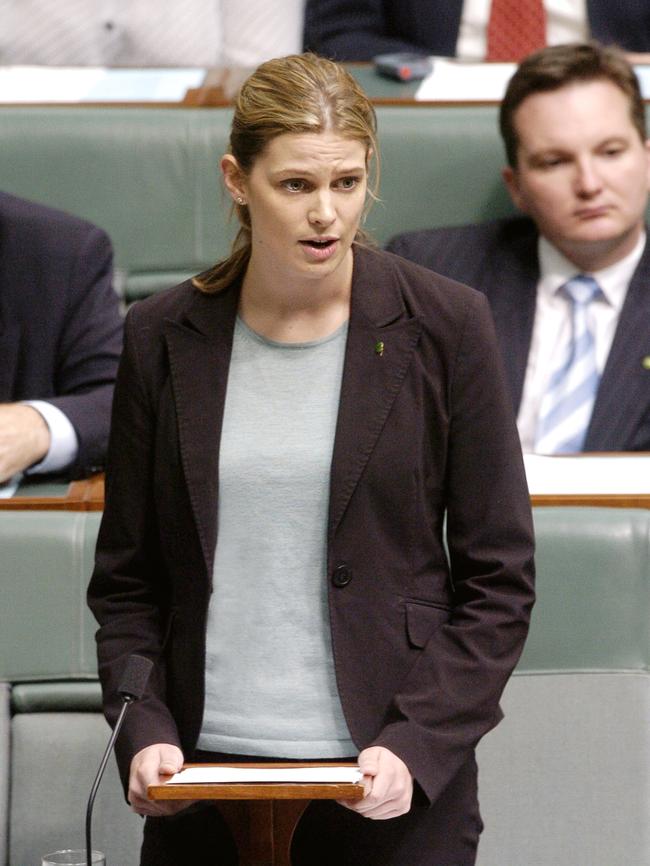
Ellis wore a grey suit to her swearing-in; one journalist wrote that she was “dressed for a day at the cricket”. She was excoriated for wearing high heels and a tight skirt in a magazine; she says she does regret wearing them — because the furore drowned out her message about body image. “I would fight for my right to wear ridiculous shoes I love. But I didn’t even like those shoes.”
She did love the shoes and pink blouse she wore for another magazine shoot, which prompted so much debate that the magazine ran a follow-up story. Readers accused her of looking like a secretary, or wearing the kind of shoes women only wear for men.
“I don’t think we should be electing women and expecting us all to dress the same, have the same interests, have the same views,” she says. “I think we have to break this whole notion that you can’t care about pretty clothes and have a brain at the same time.”
One thing Ellis never experienced was sexual harassment. Amid the fallout from the Barnaby Joyce scandal, some have claimed Parliament House is a den of drinking and sex. “I’ve been there nearly 15 years, and that’s not reflective of my experience at all,” she says. Perhaps that is because she was an MP, she says; female staffers might have different experiences.
Looking back on her career, Ellis cherishes the times she managed to make a difference. “Where you actually feel if you hadn’t been there, something might not have happened,” she explains, “that’s a pretty amazing feeling. How do you get that from any other job? That’s going to be hard to replace.”
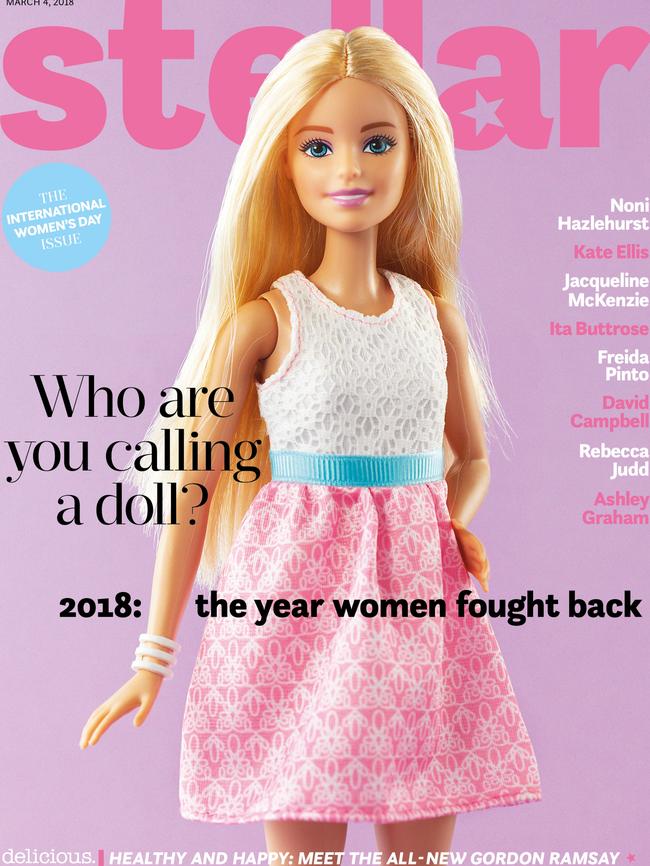
Opposition Leader Bill Shorten believes Ellis connected with voters because she was genuine. “I know how hard this decision was for her,” he tells Stellar. “But I know she’ll keep making a contribution to the policy and political debate. I’ll make a prediction: we haven’t seen the last of Kate Ellis.”
When the election is finally called and Ellis hands back her parliamentary pass, life will be no less rich or hectic. Her home is, as she describes it, a madhouse; there are four children (they have shared custody of Penberthy’s children from a previous marriage), two dogs, and a large, lively extended family. She has no plans for more babies. “It’s now been three-and-a-half years that I have been either pregnant or breastfeeding without a single break. I think I am ready to have myself back — and start some new adventures.”
Her feminist mission will have a new focus, too. Ellis had always imagined she would have girls.
“I felt like I was pretty good at being a girl, and wanted to pass that stuff on,” she says. “But I realised the best thing we can do is raise good men. I am really excited about raising compassionate, gentle, respectful, intelligent men. The world needs good men, and perhaps that’s the best contribution I can make.”
Originally published as Kate Ellis: ‘You can wear pretty clothes and have a brain too’

